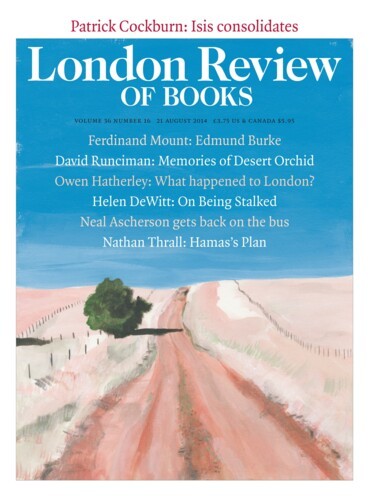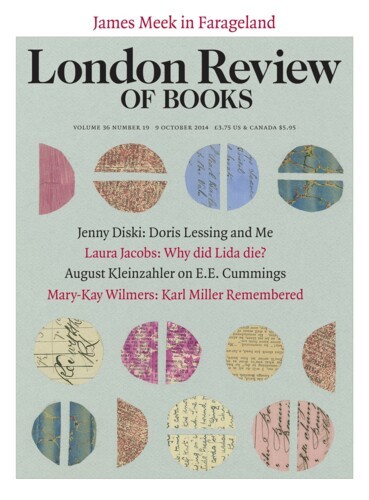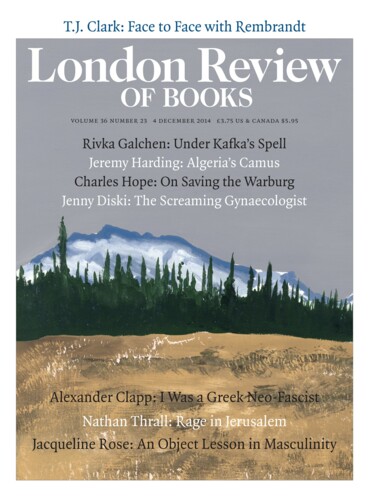Hamas’s Chances
Nathan Thrall, 21 August 2014
For Hamas, the choice wasn’t so much between peace and war as between slow strangulation and a war that had a chance, however slim, of loosening the squeeze. It sees itself in a battle for its survival. Its future in Gaza hangs on the outcome. Like Israel, it’s been careful to set rather limited aims, goals to which much of the international community is sympathetic.





